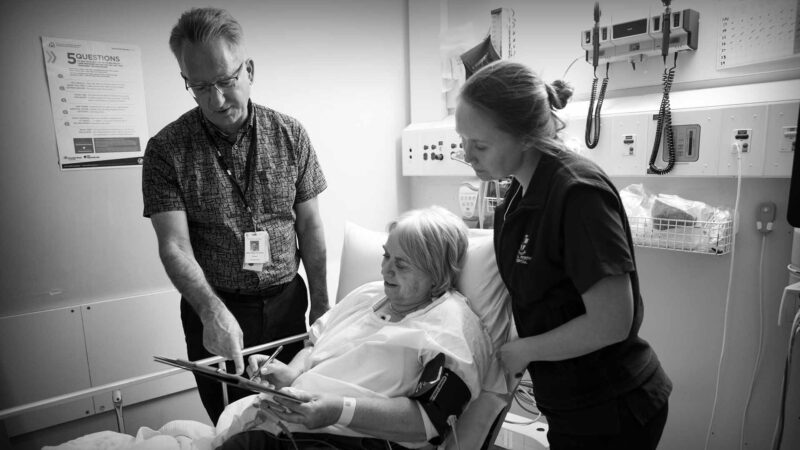DE-PRESCRIBING MEDICATIONS IN OLDER ADULTS WITH DEMENTIA
Dr Daniel Hoyle
Senior Lecturer, Therapeutics and Pharmacy Practice
School of Pharmacy and Pharmacology,
University of Tasmania, Australia
RESEARCHER PROFILE
Filmed in Hobart, Tasmania, Australia | January 2025
Dr. Daniel Hoyle is a Senior Lecturer in Therapeutics and Pharmacy Practice at the School of Pharmacy and Pharmacology, University of Tasmania. He is also an experienced clinical pharmacist with expertise in medication management in older people. Dr. Hoyle’s research interests focus on improving medicine use in older people with dementia.
He earned his PhD from the University of Tasmania in 2020, where his doctoral research examined the clinical and economic outcomes of psychotropic deprescribing within the multidisciplinary “Reducing Use of Sedatives” project implemented across 150 Australian aged care homes. This research has received several accolades, including First Place in the International Psychogeriatric Association Junior Research Awards in 2019.
Currently, Dr. Hoyle leads several projects, including research aimed at improving anticoagulant use in older individuals with dementia and atrial fibrillation using national primary care provider datasets, and the implementation of a hospital-based antipsychotic stewardship program for patients with dementia and/or delirium.
A current project is Geriatric Antipsychotic Stewardship (GApS) Program for Behavioural and Psychological Symptoms of Dementia and Delirium. This program is funded by the Royal Hobart Hospital Research Foundation through an Incubator Grant.
Additionally, Dr. Hoyle serves as an investigator within an educational intervention aimed at improving anticholinergic prescribing in hospitals. Dr. Hoyle is a guest editor with Pharmacy MDPI and holds elected positions on the Australian Deprescribing Network Executive Committee and the Pharmaceutical Society of Australia’s Tasmanian Branch Committee.
You Might also like
-
Access to dental care for priority populations
Professor Dileep Sharma is a distinguished dental educator and researcher who currently serves as Professor and Discipline Head of Oral Health at the University of Newcastle, Australia. With over two decades of experience spanning clinical practice, research leadership, and academic mentorship, Professor Sharma has established himself as a leading authority in oral health education and interdisciplinary research.
-
Clinical Research in Emergency Medicine
Professor Daniel Fatovich is a senior emergency physician and clinical researcher at Royal Perth Hospital Emergency Department (ED), with over 30 years’ experience in the design and conduct of clinical research in Emergency Medicine. He is also Head of the Centre for Clinical Research in Emergency Medicine (CCREM) within the Harry Perkins Institute of Medical Research.
-
Impact of Leukaemia Foundation’s Research Funding into Blood Cancer
Bill Stavreski is the Head of Research at the Leukaemia Foundation who talks about the research impact in recent years. The Foundation itself marks its 25th anniversary in 2025, having funded a wide range of health and medical research since 2000. With a focus on basic science, health services research, treatment, and care, the organisation has invested nearly $90 million (adjusted in current dollars terms) in approximately 370 research grants over the years.

 https://orcid.org/0000-0003-2867-3736
https://orcid.org/0000-0003-2867-3736


